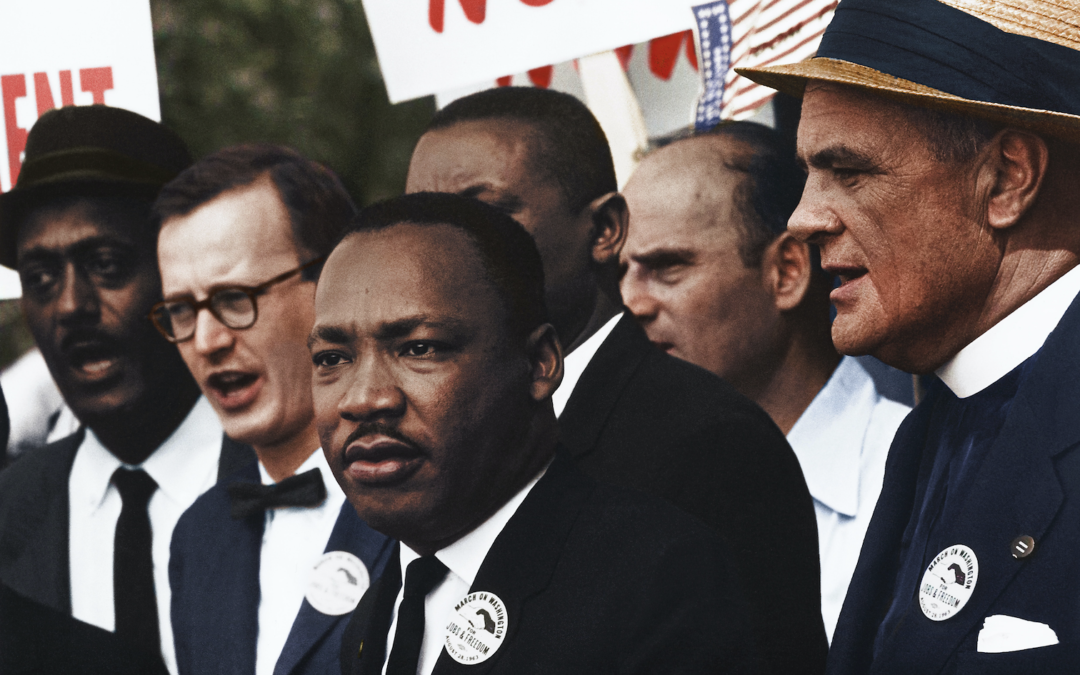Photo credit: Unseen Histories via Unsplash
This week, in the United States, we celebrated the life of Dr. Martin Luther King Jr. He is well known for his inspiring “I Have a Dream” speech during the March on Washington in 1963 and played a large role in quite a few other historic events of that time. During the Montgomery Bus Boycott of 1955, following Rosa Parks’ arrest after refusing to give up her seat to a white passenger, Dr. Martin Luther King Jr. was chosen as the protest’s leader and official spokesperson. In 1957, Dr. King and several other activists founded the Southern Christian Leadership Conference (SCLC). The SCLC was committed to achieving full equality for African American individuals through nonviolent protests. Dr. King held the role of SCLC President and traveled around the world giving lectures on nonviolent protest and civil rights as well as meeting with political leaders and religious figures. In 1963, Dr. King was arrested for being involved in the Birmingham campaign of 1963, in which activists protested segregation, unfair hiring practices, and other racial injustices. From the Birmingham jail, King. sent a letter that became known as the civil rights manifesto or the “Letter from Birmingham Jail” in which he said
“Injustice anywhere is a threat to justice everywhere. We are caught in an inescapable network of mutuality, tied in a single garment of destiny. Whatever affects one directly, affects all indirectly.”
― Dr. Martin Luther King Jr., Letter from the Birmingham Jail
In 1983, Former U.S. President Ronald Reagan signed a bill designating the third Monday of January as a federal holiday to honor Martin Luther King Jr., otherwise known as MLK Day.
Dr. Martin Luther King Jr. is well known for his massive contributions to human rights campaigns. Dr. King was a key figure in the fight for equal rights for all humans. He believed we all had a basic right to freedom. Dr. King’s tactics involved local grassroots campaigns for equal rights for African Americans but his ultimate goal was complete racial equality. He laid a solid foundation for future human rights campaigns. We see his influence every day all over the world, whether through nonviolent, peaceful protests or through voting equity that leads to meaningful law and policy changes. Martin Luther King Jr. also ignited a strong sense of community within racial minorities that still rings true today.
OneNaure believes that Dr. King’s profound words are as true today and are just as important to understand. Racial and environmental justice are interlinked. In many communities, people of color are disproportionately impacted by the adverse effects of climate change but are often not adequately represented in decision-making forums to make changes to climate policy.
Ultimately inequality and lack of representation in societies are documented to decrease the wellbeing of all members. Epidemiological research even shows that high levels of inequality negatively affect the health of even the affluent because “inequality reduces social cohesion, a dynamic that leads to more stress, fear, and insecurity for everyone.”
Dr. King’s wife, Coretta Scott King, continued to fight for civil and human rights after Dr. King’s passing, devoting her life to his legacy. Mrs. King believed the compassion shown through the civil rights movement could be extended to animals. She and her son Dexter Scott King were both vegan, claiming it was the next logical step to living a nonviolent and peaceful lifestyle. Mrs. King viewed animal rights as a natural extension of Dr. King’s philosophy of nonviolence. Both of their efforts paved the way for the animal rights movement we see today.
The legacy of Dr. King and his vision of equality, interconnection, and justice continues to inspire so many of us today.
Sources:
Martin Luther King, Jr. and the Rise of Animal Rights
MARTIN LUTHER KING, JR: FIGHTING FOR EQUAL RIGHTS IN AMERICA
Dr. Martin Luther King Jr. set the foundation for current racial equality protests
How rising inequality hurts everyone, even the rich
